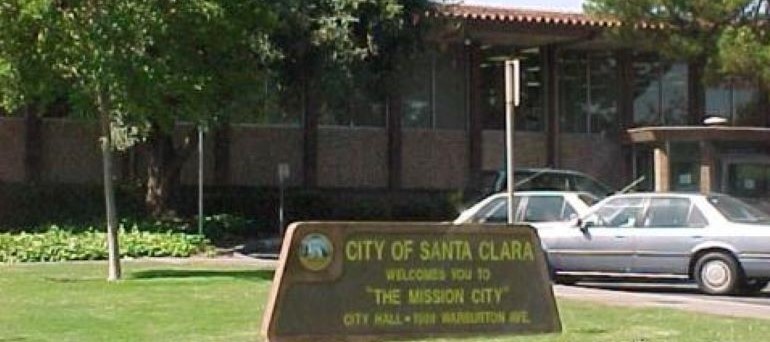The City of Santa Clara has become less transparent with the public about how it spends their money on lawyers by citing an exemption that the city administration believes shields the information from disclosure. This year, the city began redacting the name of law firms to which it paid $1.4 million for city and Stadium Authority legal work, according to a report in the Santa Clara news site Silicon Valley Voice.
In the past, the city treated lawyers like other city vendors, with their names shown on the list of bills sent to the city council, although no further specifics were posted, the story by Carolyn Schuk noted.
City Attorney Brian Doyle told the Voice that spending on legal services is now subject to attorney-client privilege, and as such, is not subject to the California’s Public Records Act’s disclosure requirements.
This is a reversal of Doyle’s previous positions, according to the online news site, which is affiliated with the Santa Clara Weekly, a newspaper based in the city. Had the new policy been in place before this year, residents would never know that Santa Clara paid $1.5 million in legal fees to attorney Steve Churchwell to fight the voting rights lawsuit it ultimately lost. In 2017, Doyle had persuaded the Council that legal contracts and bills “should not be revealed to the public.”
That view was based on a 2017 California Supreme Court ruling — LA County Board of Supervisors v Superior Court — that only details of law firm invoices “in active litigation” were protected by attorney-client privilege.
“Certain information such as names of law firms and recipients of workers’ compensation have been redacted from the Bills and Claims report,” the City said in a statement explaining its new policy. “In accordance with the Supreme Court’s ruling, the names of law firms retained by the City have been redacted from the public report to maintain confidentiality of billing records for legal services.”
The court decision offered a narrower explanation of the law. “The imperative of protecting privileged communications between attorney and client,” wrote Judge Mariano-Florentine Cuellar, “does not require us to conclude…that everything in a public agency‘s invoices for legal services is categorically privileged.”
Others read the Supreme Court’s exemption even more narrowly. One of them is Bay Area litigator James McManis, who won a precedent-setting public records case in 2017 establishing that government business conducted on personal devices is a public record.
McManis, in an interview with SV Voice, dismissed Santa Clara’s reading of the LA County decision. “It’s a matter of public interest what an agency is spending on legal bills,” he said. “Certain details can be withheld, but dates, amounts, totals, lawyers’ names, law firms should be disclosed.”
In its account, SV Voice reported that almost half of Santa Clara’s legal spending is by city utilities and its housing agency. Currently, these account for nearly half of all spending on outside legal services ($501,000) because of the many regulatory and governmental issues involved.
Some development-related legal expenses are paid for from developer contributions for that specific purpose ($433,000). Settlements and some other legal services are paid from the general fund ($243,000). Finally, the Santa Clara Stadium Authority’s legal bills ($221,000) don’t appear on the city’s Bills and Claims, but are reported separately on the Stadium Authority reports.
The remainder of the city’s outside legal spending ($221,000) is lumped together in the Special Liability Insurance Account, with insurance payments. Santa Clara doesn’t report the departments using these services, nor is there any indication of whether the payments are for advice, representation or litigation.
Santa Clara’s neighbors San José and Sunnyvale, in comparison, are considerably more transparent in their legal spending, the SV Voice reported.
Sunnyvale combines all legal services spending under Comprehensive Legal Services in its budget, and divides that into three accounts: litigation and representation (25 percent), legal advice (54 percent) and services related to development (21 percent).
San José minimizes the use of outside counsel as a matter of policy, preferring to hire staff in the City Attorney’s office — feasible for a city of San José’s size. In its budget, San José breaks out legal representation and “transactions” and appropriates city attorney’s office funding for each department.
This story has been updated from a previous version. A link to the original piece has been added, along with the name of the writer.

